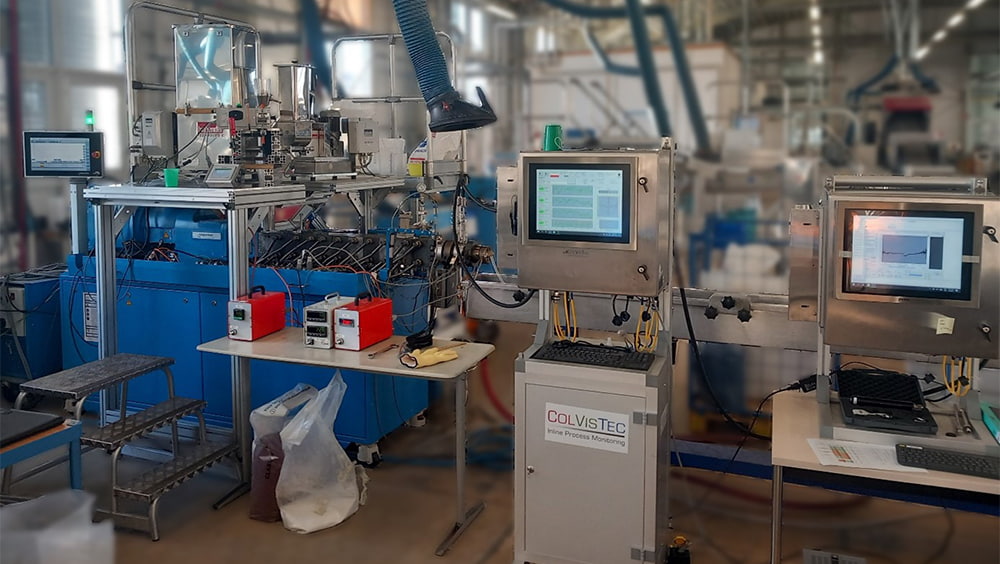In-line quality control for plastic recyclate
The RecyQuant research project makes it possible to monitor and maintain tolerable levels of foreign materials in the recyclate directly in the process. The joint project between ColVisTec AG and the SKZ Plastics Center successfully implemented the detection of foreign polymers and the direct readjustment of the dosing scales. The basis for this was the modeling of the photometric data of the plastic melt.

Test setup at the SKZ. (Photo: Kilian Dietl, SKZ)
SKZ and ColVisTec AG complete project for the inline quantification of foreign polymer in plastics recycling
A major challenge when using recyclates in the extruder process is the fluctuations in quality. In addition to general impurities, post-consumer recyclates in particular contain foreign polymers. However, excessive levels of foreign polymers in the base polymer lead to inferior product quality.
Automated correction
In a joint project, the SKZ Plastics Center and ColVisTec AG took on the challenge of measuring and automatically correcting the foreign polymer content during the ongoing process in 2022. In the event of a deviation from defined tolerance ranges, the process sequences were to be automatically adjusted by coupling with the extruder's system technology. The aim of the two-year research project was to realize a new application of CVT technology, which is to be marketed as a system combining hardware and software.
Concept proven on demonstrator
The research team was very satisfied with the results once all the tests had been completed. The main objectives were achieved and the concept was proven on a demonstrator. First of all, a chemometric model for predicting the foreign polymer content (polyethylene content between 0 and 10% by weight) in the base polymer (polypropylene) for virgin and recycled material was created in the project. A reduced wavelength range in the near-infrared could be determined for a high prediction accuracy. The suitability of the photometric approach was demonstrated using a spectrometer and modeling. In addition, both a cost-effective broadband probe for the UV-VIS-NIR spectral range and a flexible software package for control were developed. The latter enables the dosing scale to be controlled when the threshold value of the foreign polymer quantity is exceeded.
Valuable contribution to the circular economy
“The decisive factor is that carrying out tests using demonstrators on realistically colored recycled material was able to prove that the measuring system is sufficiently sensitive even for weakly reflective material,” explains Cosima Güttler, Scientist Spectroscopy at SKZ. The solution developed enables significantly improved quality control when using recycled material and therefore makes a valuable contribution to both product quality and the circular economy.
More about non-destructive testing at SKZ


